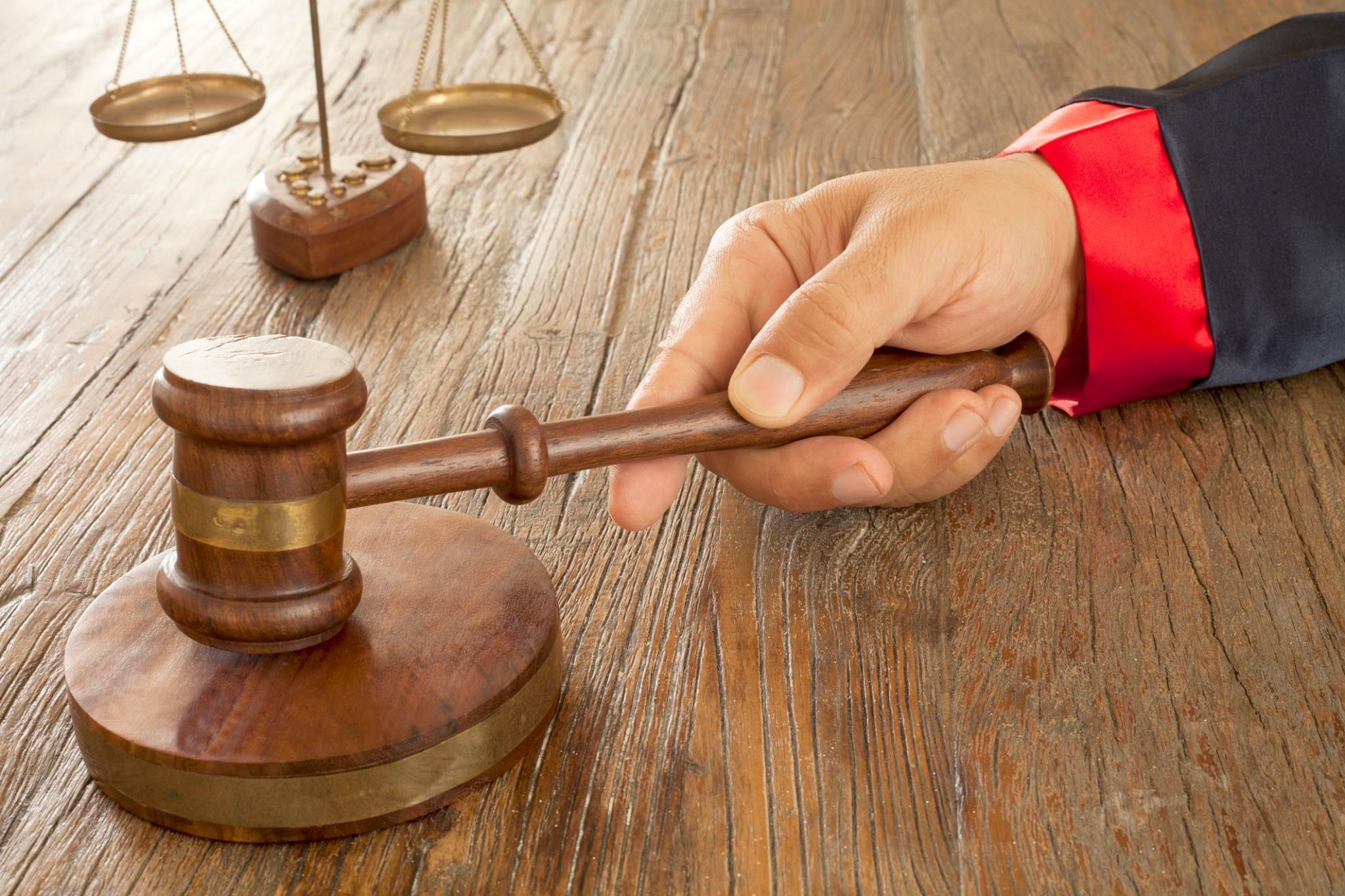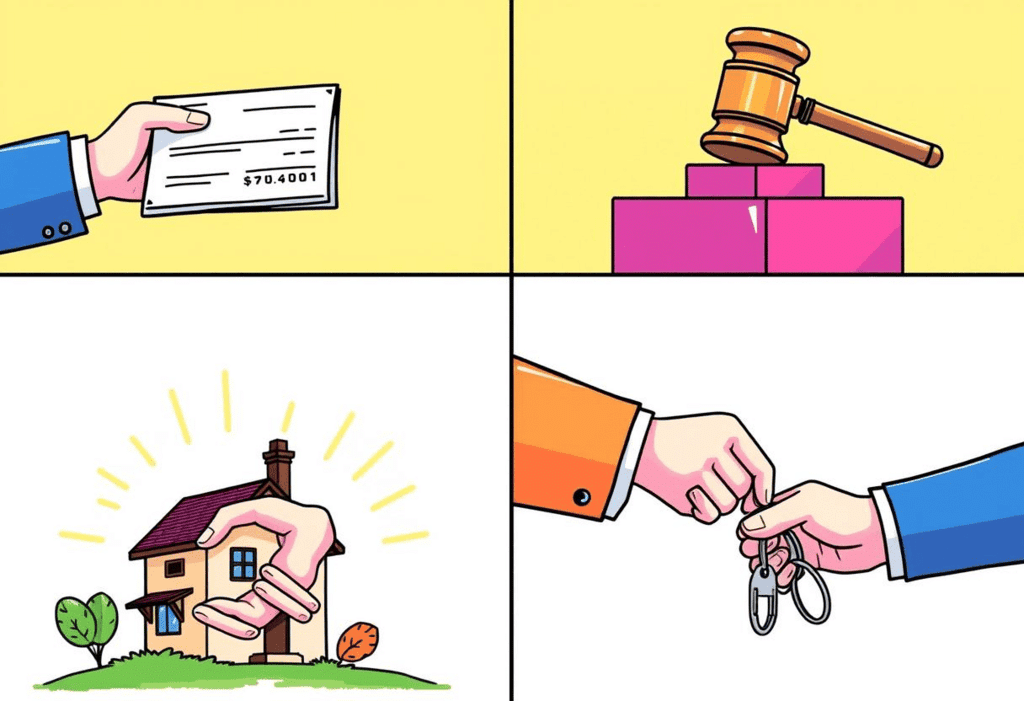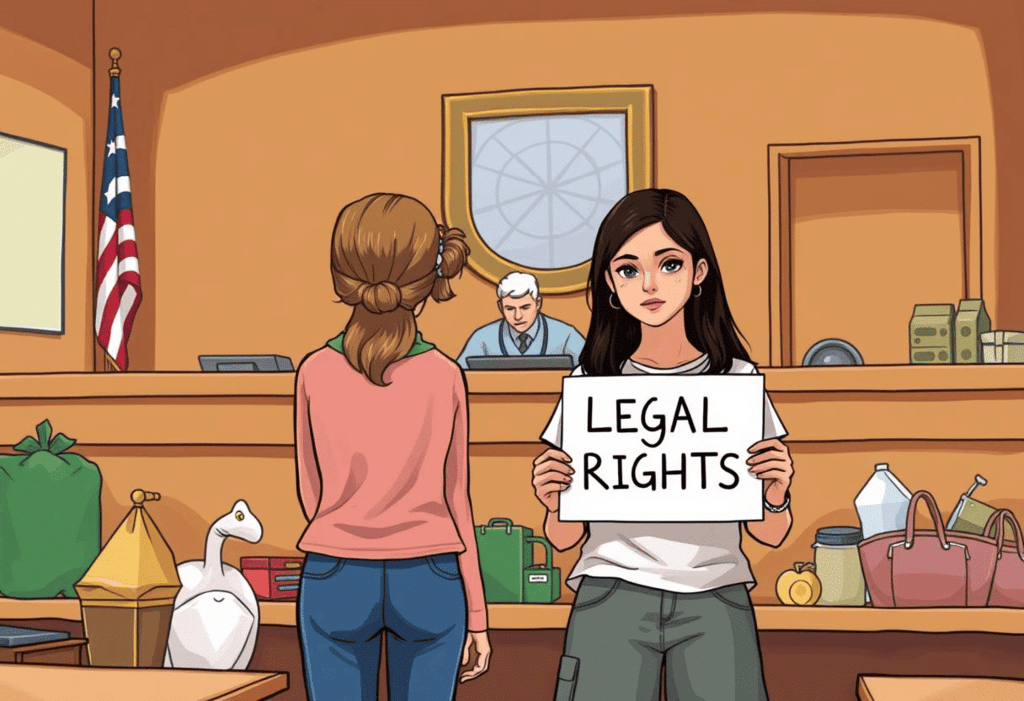Concept of Bailment | Civil Law for Judiciary Exams PDF Download
Introduction
Bailment is a common occurrence in our daily lives, often arising from various types of transactions. A typical example is when individuals take their electrical appliances to an electrician's repair shop for fixes and maintenance. In this scenario:
- Purpose: The bailment is intended for the repair of the goods.
- Bailed goods: The appliances being repaired.
- Bailor: The owner of the electrical appliances.
- Bailee: The electrician responsible for the repairs.

This situation illustrates the fundamental aspects of a bailment relationship, where the expectation is that the goods will be returned after the specified purpose is fulfilled.
Bailment relationships are not limited to repair scenarios; they are prevalent in various everyday activities, such as:
- Courier services where packages are entrusted for delivery.
- Renting a bike for a short trip.
- Borrowing a book from a library for temporary use.
- Utilizing safe deposit boxes in banks for secure storage.
These examples highlight the significance of bailment-like relationships in facilitating economic growth and everyday commercial transactions.
Contract of Bailment
- Contract: An agreement creating and defining an obligation between two or more persons. Bailment can be expressed or implied. For example, when A finds B's lost goods, a bailment is created without a direct agreement.
- Delivery of Goods: Bailment occurs when goods are transferred from one person to another, transferring possession and control but not ownership.
- Goods: Bailment involves movable assets as defined in the Sales of Goods Act, excluding actionable claims and money.
- Purpose: Goods are delivered for specific, temporary reasons such as safekeeping, transportation, or repair.
Return of Goods in a Contract of Bailment
- Bailee's Responsibility: The bailee is required to return the goods once the intended purpose is fulfilled. Alternatively, they can dispose of the goods according to the bailor's instructions.
- Understanding Bailment:. contract of bailment occurs when one person hands over goods to another for a specific purpose, with the expectation that the goods will be returned or disposed of as agreed. For instance, if person A leaves a coat with person B at a restaurant, a bailment agreement is formed. The bailee has a legal obligation to return the goods or act according to the bailor's instructions. This principle is exemplified in the legal case of Forbes Campbell and Co. Ltd. vs. The Board of Trustees of the Port of Bombay and Metal Fabs India Pvt. Ltd.
Difference Between Contract of Bailment and Contract of Pledge
Contract of Bailment
According to Section 148, a contract of bailment involves the transfer of goods from one person to another for a specific purpose, with the understanding that the goods will be returned or handled according to the instructions of the person who delivered them. The individual who delivers the goods is referred to as the bailor, while the recipient is called the bailee. It is important to note that even if goods are not delivered through a typical bailment arrangement, the person holding the goods as a bailee becomes the bailee, and the owner remains the bailor.
Essential Elements of a Contract of Bailment

- Agreement: There must be a clear agreement between the bailor (the person who owns the goods) and the bailee (the person who will take care of the goods).
- Delivery: The delivery of goods should be voluntary and in line with the terms of the contract.
- Ownership: The ownership of the goods must remain with the bailor during the bailment period. It should not be transferred to the bailee or anyone else.
Contract of Pledge
- In a contract of pledge, the bailor is called the pawnor, and the bailee is referred to as the pawnee.
- Example: If person 'A' borrows Rs. 1 lakh from person 'B' and offers their gold ring as security, this is a pledge. Here, 'A' is the pawnor, and 'B' is the pawnee.
Key Differences:
- Nature of Agreement: Bailment involves the transfer of possession of goods for a specific purpose, while a pledge involves the transfer of possession of goods as security for a debt.
- Rights of Parties: In a bailment, the bailee must return the goods or deal with them according to the bailor's instructions. In a pledge, the bailee has the right to sell the goods if the debtor defaults.
- Purpose: Bailment can be for various purposes, such as storage or repair, while a pledge is specifically for securing a debt.
Understanding these differences is crucial for clarity in legal and contractual contexts.
Identification Of Contract of Bailment in Day To Day Life
- Handing over the keys: When we entrust keys to someone, like house keys or locker keys, a bailment relationship is formed. For example, lending the keys to our house to a neighbor establishes a bailment, with one party being the bailor and the other the bailee.
- Parking lots: Parking lots, whether paid or unpaid, can exemplify bailment. In unpaid parking lots, the owner acts as the bailor while the parking lot owner becomes the bailee. On the other hand, in paid parking lots, it becomes a mutual beneficial bailment where the bailee is responsible for safeguarding the parked vehicle.
- Repair or service: Bailment for repair services covers a wide range of items from cars to machinery. Goods subject to wear and tear are often entrusted for repair on behalf of the bailor.
- Lending items for use: This type of bailment benefits the bailee. For instance, when a friend lends another friend a bike for temporary use, it constitutes a gratuitous bailment beneficial to the bailee.
- Keeping of footwear: Temples and gurudwaras provide rooms for storing footwear before entering the premises. This service, meant for safekeeping, is solely beneficial to the bailor as the bailee receives no compensation for custody.
- Warehouse facilities: Warehousing facilities, often used for storing agricultural products off-season, primarily benefit the bailor. Farmers storing food grains in warehouses gain advantages when the grains cannot be grown, making the warehousing system advantageous for the bailor.
Duties of Bailor and Bailee under Contract of Bailment

Duties of Bailor
- Duty to Disclose Defects in the Goods: The bailor is obligated to inform the bailee about any defects or faults in the goods being bailed. If the bailor fails to disclose such information, they may be held liable for any damage to the goods or losses incurred by the bailee. This duty is particularly crucial in cases of gratuitous bailment, where the bailee is not being compensated.
- Duty to Indemnify the Bailee for Losses: In a non-gratuitous bailment where no payment is involved, the bailor is responsible for reimbursing the bailee for any losses they experience during the bailment period.
- Duty to Compensate for Bailee's Loss Due to Defective Title: If the bailee uses the goods in a manner that violates the terms of the bailment agreement, the bailor must compensate the bailee for any damages resulting from this unauthorized use.
- Duty to Collect Goods from the Bailee: The bailor is required to collect the goods from the bailee as per the terms of the agreement. This can be done through actual delivery or other specified methods outlined in the contract.
Duties of Bailee
- Duty to Exercise Reasonable Care: The bailee is obligated to take reasonable care of the bailed goods, akin to how a prudent person would look after their own items of similar nature and value.
- Duty Not to Make Unauthorized Use of Goods: The bailee is liable for any damage that occurs if they use the goods in a manner that has not been permitted.
- Duty Not to Mix Goods with Their Own: The bailee must refrain from combining the bailed goods with their own possessions.
- Duty to Return Goods: It is the responsibility of the bailee to return the goods to the bailor promptly after the bailment period concludes or the purpose of the bailment is fulfilled.
- Duty Not to Claim Adverse Title: The bailee cannot dispute the bailor's ownership of the goods. Returning the goods in good faith shields the bailee from liability to any third party claiming ownership.
These duties are crucial elements of the relationship between bailor and bailee, outlining their respective responsibilities and obligations in a bailment agreement. Examples and cases help illustrate the practical application of these duties in various scenarios, ensuring clarity and understanding.
Rights of Bailor and Bailee under Contract of Bailment
Rights of Bailor
- Right to Terminate the Contract of Bailment: The bailor has the right to end the bailment agreement and seek compensation for any damage caused by the unauthorized use of the bailed items.
- Right to Request Return of Goods: In gratuitous bailment, the bailor can request the return of goods at any time, regardless of when they were lent. This right is subject to the terms of the bailment, and the bailor may need to compensate the bailee for losses exceeding the benefits received.
- Right to Enforce the Bailee's Duties: The bailor can take legal action against the bailee to ensure that the bailee's responsibilities are upheld, as these responsibilities reflect the rights of the bailor.
Rights of the Bailee

- Right to Compensation for Premature Termination: If a bailment ends early, the bailee is entitled to compensation for any losses incurred.
- Right to Claim Damages: If the bailee suffers damage due to hidden defects in the bailed items, they have the right to seek compensation from the bailor.
- Right to Legal Recourse: If someone unlawfully disrupts the bailee's possession or use of the bailed goods, the bailee can take legal action against that person. This right allows the bailee to seek remedies that the owner could have pursued if the goods were not under bailment.
- Right to Return Goods to Joint Owners: When goods have multiple owners, the bailee can return them to any one owner unless the bailment agreement states otherwise.
- Right to Recover Expenses: In cases of free bailment, the bailee can request repayment of essential expenses incurred during the bailment.
- Right against Third Parties and Owners: Any compensation obtained through legal action against a third party will be shared based on the interests of both the bailor and the bailee.
Finder Of Goods As A Bailee

- According to Section 71 of the Indian Contract Act, 1872, a person who finds goods belonging to someone else and takes them into their possession is referred to as a bailee.
- The finder of goods possesses certain legal rights. They have the authority to keep the goods safe from everyone except the true owner until the rightful owner is located.
- The finder acts as a caretaker for the goods, holding them on behalf of the real owner.
- Once the owner is identified, the finder is obligated to return the goods promptly and make every effort to verify the identity of the true owner.
Rights of the finder of goods

- Right to Retain Goods: The finder has the legal right to keep the goods until the original owner is located. They can hold the goods against anyone until the owner is identified. Depending on local laws, the finder may or may not be able to claim compensation for any expenses or efforts incurred while safeguarding the goods or searching for the owner.
- Right to Claim Reward: The finder can request the reward promised by the owner for returning the goods. This is usually expected in such cases. The finder has the legal right to claim the reward and may keep the goods until they receive it.
- Right to Sell Goods: If the found item is sellable and the owner cannot be found or refuses to pay the finder’s lawful charges, the finder has the right to sell the item.
Examples of Finder's Rights
- Retaining Goods: For instance, if you discover a lost wallet on the street, you have the right to keep it until you find the owner and they offer you a reward for its return.
- Claiming Reward: Imagine finding a missing pet with a reward poster offering money for its safe return. You can claim this reward once you reunite the pet with its owner.
- Selling Goods: If you come across a valuable antique item with no identification, and your efforts to locate the owner fail, you may have the legal right to sell the item if the conditions are met.
Understanding the rights of the finder of goods is crucial in handling situations involving lost or misplaced items, ensuring clarity and fairness in such dealings.
Finding Goods and Selling Circumstances

- Goods that Can Spoil: If the item is perishable or likely to spoil, the finder has the right to sell it.
- Reasonable Expenses: If the finder's reasonable expenses amount to two-thirds of the item's value, they are also permitted to sell the item.
- Right of Lien: As per Section 168 of the Indian Contract Act, 1872, the finder has the right to hold onto the goods until they receive fair compensation for the costs incurred in keeping the items safe and attempting to locate the owner. This section outlines the rights of finders concerning the possession and disposal of lost items.
These provisions are in place to protect finders and provide clear guidelines for their actions in situations where they come across lost items. If goods are at risk of spoiling, the finder is legally allowed to sell them. Similarly, if the finder incurs significant expenses in safeguarding the goods and searching for the owner, they may have the right to sell the items.
Liability Towards The True Owner
- Taking Care of Found Items: When someone finds lost goods, they are expected to take care of them with the same level of care as they would their own belongings.
- Prohibition on Use: The finder is not allowed to use the discovered items for any purpose.
- Avoiding Mixing: Found goods should not be mixed with the finder’s personal belongings.
- Locating and Returning: The finder has an obligation to make reasonable efforts to locate the rightful owner and return the goods promptly.
- Compensation for Negligence: If the finder fails to return the goods due to negligence, they are liable to compensate the owner for any loss or damage incurred.
It is advisable to consult local laws concerning the rights and responsibilities of finders for detailed legal requirements.
Right to Dispose of Goods in a Contract of Bailment
In the realm of contracts of bailment, the right to dispose of goods is a crucial element that governs the termination of such agreements. Let's delve into the circumstances under which a contract of bailment can be terminated:
- Expiry of Specified Period: When a contract of bailment is established for a specific duration, its termination naturally occurs upon the expiration of that set period.
- Specific Purpose: Goods are often bailed to the bailee for a particular reason. Once this purpose is fulfilled, the contract is automatically concluded.
- Termination of Gratuitous Bailment: In cases of gratuitous bailment, the bailor retains the right to request the return of goods even before the purpose is achieved or the specified period ends. The contract ends upon the goods' return.
- Inconsistent Use of Goods: If the bailee misuses or utilizes the goods in a manner inconsistent with the agreement, the bailor can demand the return of the goods, leading to the termination of the contract.
- Death of the Bailor or Bailee: The unfortunate event of the death of either the bailor or bailee results in the termination of the contract of bailment.
Case Law
- Kavita Trehan v. Balsara Hygiene Product Ltd. (1992): The Supreme Court ruled that for bailment to occur, there must be a transfer of goods to the bailee. Without a change in possession, bailment cannot take place.
- Jagdish Chandra Trikha v. Punjab National Bank, (1998): In this case, a parcel containing gold jewellery was securely packed, but upon arrival, some jewellery was missing. The Delhi High Court determined that the bank acted as a bailee in this situation.
- Annamalai Timber Trust Ltd. v. Thrippunithura Dewas, (1954): The Kerala High Court ruled that bailment does not apply if there is no obligation to return the exact item in a changed condition.
|
363 docs|256 tests
|
FAQs on Concept of Bailment - Civil Law for Judiciary Exams
| 1. What is the manner of creation of a contract of bailment? |  |
| 2. What are the duties of the bailor and bailee under a contract of bailment? |  |
| 3. How does a contract of bailment differ from a contract of pledge? |  |
| 4. Can you provide an example of a contract of bailment in day-to-day life? |  |
| 5. What rights do the bailor and bailee have under a contract of bailment? |  |
















